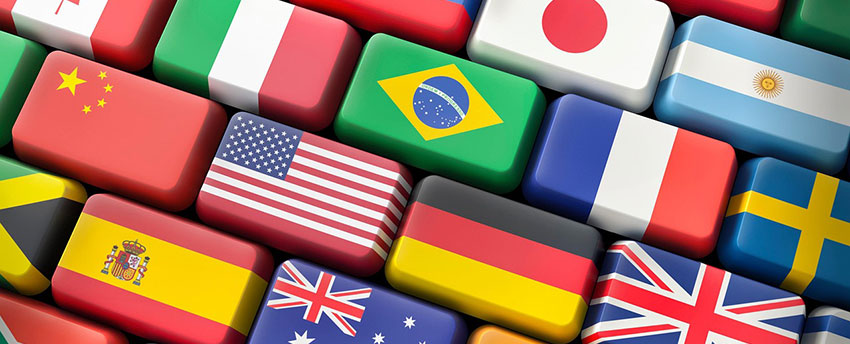Why professional online translation services are becoming indispensable for international communication
- Categories: Languages
- 8 Sep 2025
Global involvement has never been stronger. From global trade and telecommuting to expatriate relocation and global education, language communication is at the center of this revolution. Yet translation achievement is more than word-moving. It’s about maintaining context, precision, and cultural subtlety. That is where seasoned online translation service providers are surfacing, offering individuals and institutions with consistency that will never be possible with machine-based aids.
The market for language services reached more than $65 billion in 2023, says CSA Research, where the majority of growth came from online-based platforms. Universities, medical institutions, law firms, and business organizations alike are all increasingly dependent on secure online services to translate anything from contracts to academic diplomas. Immigrants seeking visas or moving abroad, on the other hand, depend on sworn translators that can generate certified translation that is acceptable to embassies and government offices.
“Translation is no longer a supporting function; it’s a foundation for cross-border trust,” says leading translation service provider Protranslate’s CEO and founder Kerem Kalkanci. “When people send legal, medical, or educational documents, they are not just sending words. They are entrusting vulnerable parts of their lives and businesses into the hands of other individuals. That includes professionally translating online.”
Why Demand for Online Professional Translation Is on the Rise
The last decade has seen record expansion in international mobility. The UN International Migration Report reports that today there are over 281 million migrants worldwide, or 3.6% of the global population. This expansion has driven increased demand for sworn translation services. Immigration agencies, institutions of higher education, and licensing boards often require documents translated into a second language to be authenticated by professional translators.
Expats are particularly organizing the market. An expat relocating to Europe, for example, is likely to need dozens of documents translated—birth certificates, marriage certificates, school transcripts, and work contracts. Something that previously meant going out to find local translators in person is now done on websites where customers upload documents and receive sworn translations sent by remote means.
Even in the legal sphere, the trend is equally visible. Transborder law firms dealing on a cross-border basis require same-day turnaround of contracts, intellectual property filings, and compliance filings. Courts in different jurisdictions are increasingly resorting to electronic filing of certified translations. Online professional translation services are, in the majority of cases, the only feasible solution.
The Shift Toward Online Platforms
Ease of the web platform has transformed availability of translation. Self-service websites allow customers to upload files, choose a language pair, and receive professional translations at their home or office.
For example, a scholarship student in Canada can send transcripts to a safe site and receive translations in days, certified and ready to be submitted. A business expanding its operations in the Middle East can quickly translate product guides and sales materials into Arabic with assurance that specialists—and not computers—are attending to both linguistic accuracy and cultural sensitivity.
A representative of an international consultancy has recently said, “Professional online translation services from companies like Protranslate are the bridge between local markets and global reach. Without them, expansion into new countries would be slowed down by paperwork alone.”
Industry Insights: Professional versus Informal Translation
Whereas ordinary free tools are adequate for casual communication, they fall short when accuracy carries legal, medical, or financial consequences. For example:
- Legal errors: An inauspicious translation of a clause in a contract can make the deal null and void or expose parties to litigation.
- Immigration issues: Incorrect translation of a birth certificate can delay a visa application or even lead to rejection.
- Medical risks: Misinterpretation in patient records can lead to faulty treatment.
This is why the demand for expert human services and sworn translators keeps increasing, not decreasing, even as artificial technology becomes more prominent. According to Slator’s report, certified translation continues to be one of the fastest-growing industries, posting consistent yearly growth driven by legal, governmental, and immigration-related demands.
Protranslate as a Pioneer in Online Professional Translation
Among such providers of the demand, Professional online translation services such as Protranslate have gained a reputation of reliability and convenience. The site brings together competent translators for dozens of languages, offering services for business, legal, medical, and academic purposes.
Industry experts note that such sites are the next stage of language services—bringing together accessibility and professional accountability. Unlike underground solutions, these sites are conceived on the lines of compliance, confidentiality, and precision.
A UK education counsellor noted, “We recommend online sworn translation services to students who study abroad because they are time-saving and meet the particular certification requirements universities demand.”

The Rising Applications of Professional Online Translation
The applications of such services continue to rise:
- Immigration and Expats’ Needs: From visa petitions to residency permits, certified translations are a requirement in most countries.
- Business Expansion: Contracts, human resources manuals, training manuals, and product descriptions must be professionally translated for conformity and local market operations.
- Academic Career Directions: Students who attend international schools need diploma and transcript translation for university admissions, scholarship, and licensing.
- Healthcare and Biotechnology: Medical records, prescriptions, and trial documents require precise translations, typically under regulatory oversight.
All of these sectors demand not just language expertise but also subject-matter skills. Legal or medical graduates who are official translators ensure that the translation meets professional standards in all areas.
The Future: The Professional Standard for Translation
The global translation market is expected to reach $80 billion by 2030, according to Nimdzi Insights. With migration patterns continuing, remote working on the rise, and border commerce on the rise, web professional translation platforms will be even more prominent.
“The future of translation is where professionalism and accessibility meet,” Kalkanci says. “We imagine a world in which people won’t have to worry about language as the barrier to opportunity.”.
At least until now, here’s the one thing that’s clear: demand for professional online translation services is on the rise in legal, academic, medical, and business markets—and platforms that combine certified credentials with digital convenience are setting new standards.
Subscribe to our newsletter
If you want to be informed of tips and offers, let us know your email!
By submitting this form I confirm that I have read and accept the privacy policy.








